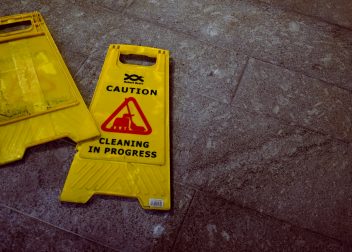Spotless Reputation: How Cleanliness Affects Your Business’s Image and Brand Perception
In the world of business, first impressions matter. From the moment a customer walks through the door or visits a website, they begin forming opinions about a company’s professionalism, attention to detail, and overall quality. One often-overlooked aspect that profoundly influences these perceptions is cleanliness. Whether it’s a retail store, restaurant, office space, or online presence, the cleanliness of a business can significantly impact its reputation and brand perception. In this article, we explore the importance of cleanliness in shaping a business’s image and how maintaining a spotless environment can enhance brand reputation.
The Power of First Impressions
In the realm of business, the adage “you never get a second chance to make a first impression” holds true. When customers enter a physical store or office, the cleanliness of the environment is one of the first things they notice. A clean, well-maintained space conveys professionalism, attention to detail, and a commitment to customer satisfaction. On the other hand, a dirty or unkempt environment can immediately turn off potential customers and tarnish a business’s reputation.
Consider a scenario where a customer walks into a restaurant with dirty floors, smudged windows, and unkempt tables. Regardless of how delicious the food may be, the poor cleanliness of the establishment creates a negative impression that can overshadow the dining experience. In contrast, a restaurant with sparkling clean surfaces, fresh-smelling air, and neatly arranged tables invites customers to relax and enjoy their meal with confidence.
Brand Perception and Customer Trust
Cleanliness goes beyond mere aesthetics; it directly impacts how customers perceive a brand and influences their level of trust and confidence in the business. A clean and well-maintained environment signals to customers that the business cares about their experience and prioritises their well-being. This perception fosters trust and loyalty, encouraging customers to return and recommend the business to others.
In today’s digital age, where online reviews and social media presence play a significant role in shaping brand perception, cleanliness can make or break a business’s reputation. Customers are quick to share their experiences, both positive and negative, with friends, family, and online communities. A single negative review highlighting cleanliness issues can spread rapidly and deter potential customers from engaging with the business.
Furthermore, cleanliness extends beyond physical spaces to include digital platforms such as websites and social media profiles. An outdated or poorly maintained website with broken links, cluttered pages, and outdated content can convey a lack of professionalism and attention to detail. In contrast, a clean and user-friendly website reflects positively on the brand, enhancing credibility and trust among online visitors.
Health and Safety Considerations
In addition to influencing brand perception, cleanliness plays a crucial role in ensuring the health and safety of customers and employees. A clean environment reduces the risk of illness and infection, creating a safer and more hygienic space for everyone. In industries such as healthcare, hospitality, and food service, where cleanliness is paramount, maintaining rigorous sanitation standards is not only a matter of reputation but also a legal requirement.
During the COVID-19 pandemic, the importance of cleanliness and hygiene has been magnified, with businesses implementing enhanced cleaning protocols to mitigate the spread of the virus. Customers are more conscious than ever about the cleanliness of the places they frequent, and businesses that prioritise cleanliness gain a competitive advantage by providing reassurance and peace of mind.
Employee Morale and Productivity
The impact of cleanliness extends beyond customer perception to affect employee morale and productivity. A clean and well-maintained workspace fosters a positive work environment, boosting employee satisfaction and engagement. Employees are more likely to take pride in their work and feel valued when they operate in a clean and organised setting.
Conversely, a dirty or cluttered workspace can have detrimental effects on employee morale and productivity. Studies have shown that a messy environment can lead to increased stress, decreased focus, and reduced productivity among employees. By investing in cleanliness and providing employees with a clean and organised workspace, businesses can create a conducive environment for success and innovation.
Best Practices for Maintaining Cleanliness
Achieving and maintaining cleanliness requires a proactive approach and a commitment to high standards. Here are some best practices for businesses looking to enhance their cleanliness and improve their reputation:
- Develop a Cleaning Schedule: Establish a regular cleaning schedule that outlines daily, weekly, and monthly tasks to ensure all areas of the business are thoroughly cleaned and maintained.
- Train Staff: Provide comprehensive training to employees on proper cleaning techniques, sanitation protocols, and the importance of cleanliness in shaping the business’s image.
- Invest in Quality Cleaning Products: Use high-quality cleaning products and equipment that are effective against germs and bacteria while minimising environmental impact.
- Implement Hygiene Protocols: Implement hygiene protocols such as handwashing stations, sanitising stations, and signage reminding customers and employees to practice good hygiene habits.
- Regular Inspections: Conduct regular inspections of the premises to identify areas that require attention and address any cleanliness issues promptly.
- Solicit Feedback: Encourage feedback from customers and employees regarding cleanliness and use this feedback to make improvements and adjustments as needed.
Cleanliness is not just a matter of aesthetics; it’s a critical component of a business’s reputation and brand perception. A clean and well-maintained environment signals professionalism, fosters trust, and enhances the overall customer experience. By prioritising cleanliness and implementing rigorous sanitation standards, businesses can strengthen their reputation, build customer loyalty, and create a positive working environment for employees. In today’s competitive marketplace, maintaining a spotless reputation is essential for long-term success and sustainability.
Article Sponsored by:

Website: https://www.exclusiveprocleaning.co.uk
Email: admin@exclusiveprocleaning.co.uk
Telephone: 0161 222 0076



